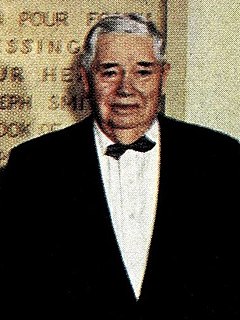A Quote by Napoleon Bonaparte
I marvel that whereas the ambitious dreams of my self, Caesar, and Alexander should have vanished into thin air, a Judean peasant-Jesus-s hould be able to stretch His hands across the centuries and control the destinies of men and nations.
Related Quotes
For if I should not believe all that is written by Historians, of the glorious acts of Alexander, or Caesar; I do not think the Ghost of Alexander, or Caesar, had any just cause to be offended; or any body else, but the Historian. If Livy say the Gods made once a Cow speak, and we believe it not; we distrust not God therein, but Livy. So that it is evident, that whatsoever we believe, upon no other reason, then what is drawn from authority of men only, and their writings; whether they be sent from God or not, is Faith in men only.
He [Julius Caesar] learned that Alexander , having completed nearly all his conquests by the time he was thirty-two years old, was at an utter loss to know what he should do during the rest of his life, whereat Augustus expressed his surprise that Alexander did not regard it as a greater task to set in order the empire which he had won than to win it.
For centuries, dreams have been used to communicate instruction and direction to people of purpose - great men and women. God used dreams to prepare Joseph for his future as a leader of nations. He gave battle plans to Gideon in a dream. Joan of Arc, Jacob, George Washington, Marie Curie, and the apostle Paul were all guided by their dreams.
I often think that at the center of me is a voice that at last did split, a house in my heart so invaded with other people and their speech, friends I believed I was devoted to, people whose lives I can simply guess at now, that it gives me the impression I am simply a collection of them, that they all existed for themselves, but had inadvertently formed me, then vanished. But, what: Should I have been expected to create my own self, out of nothing, out of thin, thin air and alone?
Where was he, her Alexander, of once? Was he truly gone? The Alexander of the Summer Garden, of their first Lazarevo days, of the hat in his hands, white toothed, peaceful, laughing, languid, stunning Alexander, had he been left far behind? Well, Tatiana supposed that was only right. For Alexander believed his Tatiana of once was gone, too. The swimming child Tatiana of the Luga, of the Neva, of the River Kama. Perhaps on the surface they were still in their twenties, but their hearts were old.
The shortest way to arrive at glory should be to do that for conscience which we do for glory. And the virtue of Alexander appears to me with much less vigor in his theater than that of Socrates in his mean and obscure. I can easily conceive Socrates in the place of Alexander, but Alexander in that of Socrates I cannot.










































